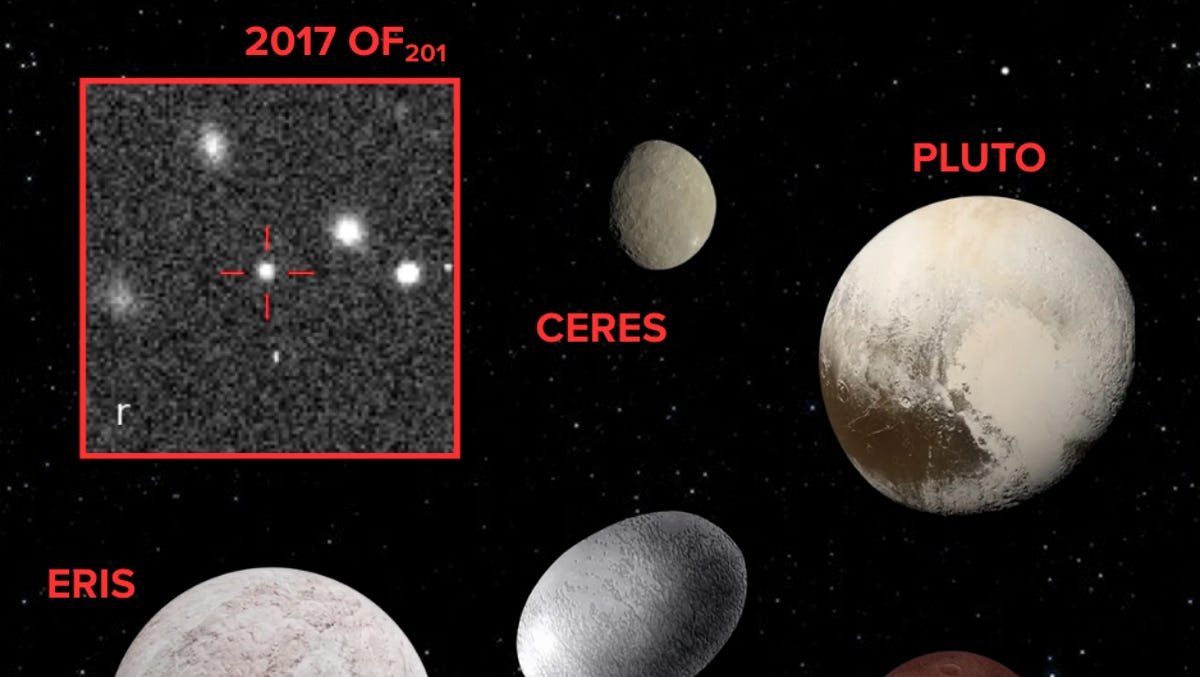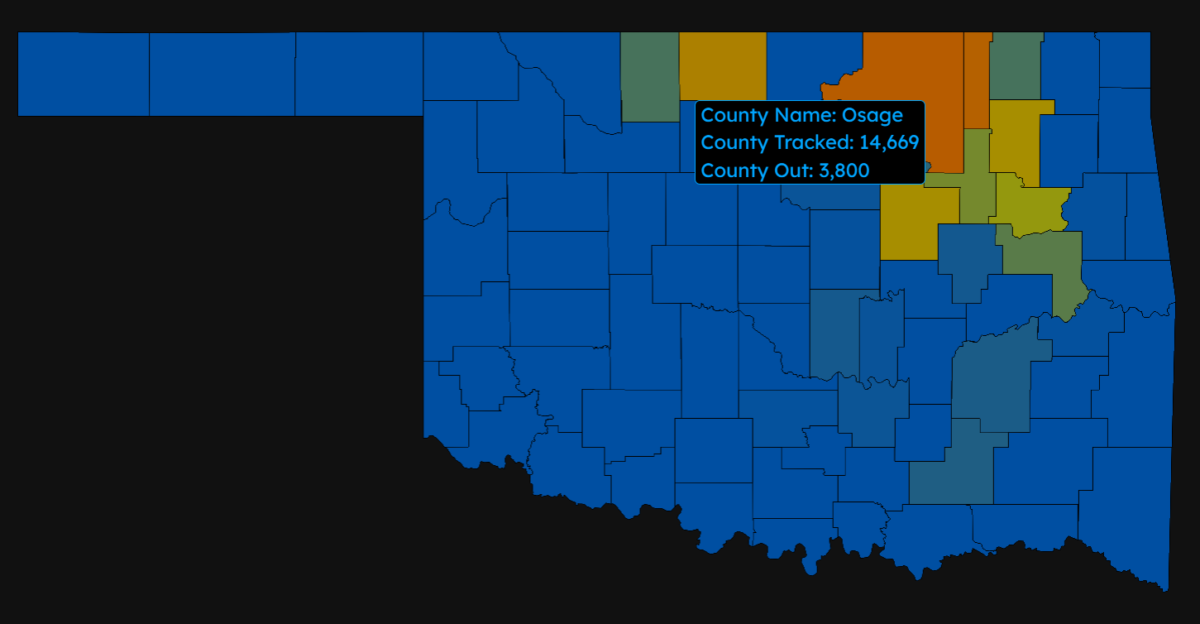Now Reading: New ‘dwarf planet’ found beyond Neptune
-
01
New ‘dwarf planet’ found beyond Neptune
New ‘dwarf planet’ found beyond Neptune

Astrophysicists have found a new planet, smaller than Pluto and considered that dwarf planet’s ‘extreme cousin’ in a far-away part of the solar system thought to be empty.

James Webb captures Jupiter’s shimmering aurora
NASA’S James Webb Space Telescope captured new details of auroras on Jupiter.
Earth has a newly-discovered neighbor in the solar system.
But the heavenly body – possibly a dwarf planet à la Pluto – isn’t a frequent visitor. Located beyond Neptune, its extreme orbit circumnavigates the sun once every 25,000 years, taking it beyond our solar system.
The new object, named 2017 OF201, was discovered by researchers in an astronomical image database while searching for trans-Neptunian objects (TNOs) and possible new planets in the outer solar system.
Sihao Cheng, an astrophysicist at the Institute for Advanced Study’s School of Natural Sciences, led the team that discovered the object, which he described as an “extreme ‘cousin’ of Pluto,” in a comment on his personal website.
2017 OF201 is about one-third the size of Pluto, which was reclassified as a dwarf planet in August 2006, and “is likely large enough to qualify as a dwarf planet, and its orbit is extremely wide,” Cheng said.
New tough-to-detect dwarf planet has an extreme orbit
“The object’s aphelion – the farthest point on the orbit from the Sun – is more than 1600 times that of the Earth’s orbit,” Cheng said in a synopsis of the findings posted May 22 on the Institute for Advanced Study (IAS) website. “Meanwhile, its perihelion – the closest point on its orbit to the Sun – is 44.5 times that of the Earth’s orbit, similar to Pluto’s orbit.”
The researchers identified 2017 OF201 using 19 different astronomical database exposures, captured over seven years. The International Astronomical Union’s Minor Planet Center officially announced the new object’s discovery on May 21, the IAS said.
2017 OF201’s extreme orbit makes it detectable about 1% of the time, the researchers said. Spotting 2017 OF201 beyond the Kuiper Belt, a donut-shaped section of space past the orbit of Neptune filled with icy debris, suggests the region may not be as empty as previously thought.
“The presence of this single object suggests that there could be another hundred or so other objects with similar orbit and size; they are just too far away to be detectable now,” Cheng said in the synopsis. “Even though advances in telescopes have enabled us to explore distant parts of the universe, there is still a great deal to discover about our own solar system.”
The extreme orbit of 2017 OF201 also suggests the object “must have experienced close encounters with a giant planet, causing it to be ejected to a wide orbit,” said Eritas Yang, a Princeton University graduate student who assisted in the research, in the study synopsis.
More than one galactic event could have created 2017 OF201’s orbit, Cheng added. “It’s possible that this object was first ejected to the Oort cloud, the most distant region in our solar system, which is home to many comets, and then sent back,” he said.
New dwarf planet could dash Planet X hypothesis
The new object could also challenge the hypothesis that there’s a “Planet X” or “Planet Nine” beyond Pluto, with gravity affecting dwarf planets and other objects in the Kuiper Belt. That’s because 2017 OF201’s orbit is “well outside the clustering observed in extreme (TNOs), which has been proposed as dynamical evidence for a distant, undetected planet,” the researchers write in a draft version of their submitted research.
“The existence of 2017 OF201 might suggest that Planet 9 or X doesn’t exist,” said Jiaxuan Li, another Princeton University astrophysical sciences grad student who collaborated on the research, on his personal website.
But research will continue. “I hope Planet 9 still exists, because that’ll be more interesting,” Cheng told the New Scientist.
Contributing: Doyle Rice and Elizabeth Weise.
Mike Snider is a reporter on USA TODAY’s Trending team. You can follow him on Threads, Bluesky, X and email him at mikegsnider & @mikegsnider.bsky.social & @mikesnider & msnider@usatoday.com
What’s everyone talking about? Sign up for our trending newsletter to get the latest news of the day



















































